The Best Vitamin D Supplements And Vitamin D Explained
Be smart in the sun – or take a supplement – to increase your odds of staying healthier for longer

Every year in the UK we wait desperately for the summer to begin. But feeling the sun on your skin isn’t only good for your mood, it’s also essential for bone and muscle health – and it may even lower your risk of developing cancer.
Vitamin D is synthesised by your body when your skin is exposed to direct sunlight. However, this far north of the equator, sunlight isn’t strong enough most of the year to initiate vitamin D production. The lack of sun in the UK means that around 30% of Brits have low levels of vitamin D in the winter and 10% are deficient in the summer.
From late March to early September, a little exposure to sunshine will help keep your D levels topped up. Experts say going outside for a matter of minutes without sunscreen around the middle of the day every day, or as often as you can, should be enough. The rest of the time, take a good-quality vitamin D supplement instead.
The government advises adults to consider taking a 10microgram supplement of vitamin D daily between October and March. (We use the abbreviation mcg for micrograms, but you may see μg on packets. Some packaging uses IU instead, which stands for International Units – 10micrograms of vitamin D is equivalent to 400 IU.)
If you’re not already clued up on vitamin D supplements, we have all the info you could possibly need on sunshine pills, as absolutely no-one calls them, but first, a selection of good-quality vitamin D supplements.
The Best Vitamin D Supplements To Buy
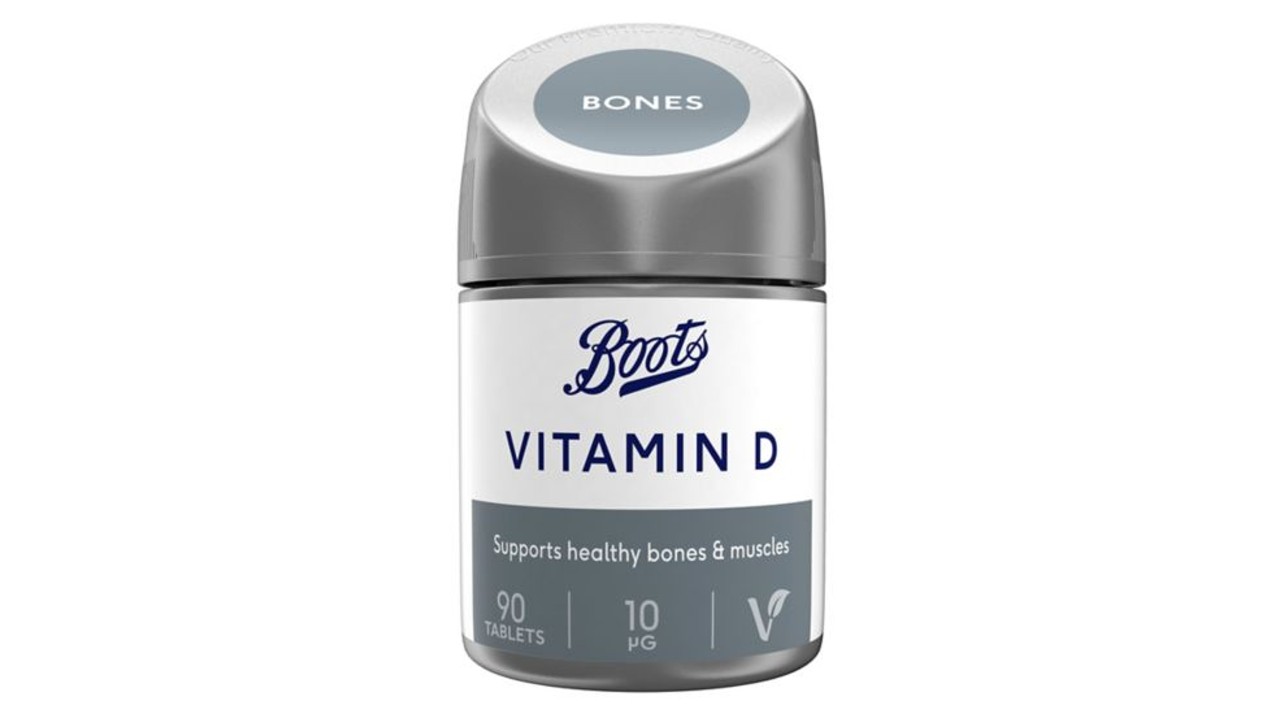
Boots Vitamin D
Specifications
Reasons to buy
Reasons to avoid
There’s no need to spend big bucks on vitamin D, because all major supermarkets and pharmacists stock an own-brand version. This tub from Boots contains 90 tablets that contain the recommended 10mcg-a-day and it costs under £3. Unless you want to buy in bulk or struggle with swallowing tablets, there’s no real reason to look beyond own-brand options.
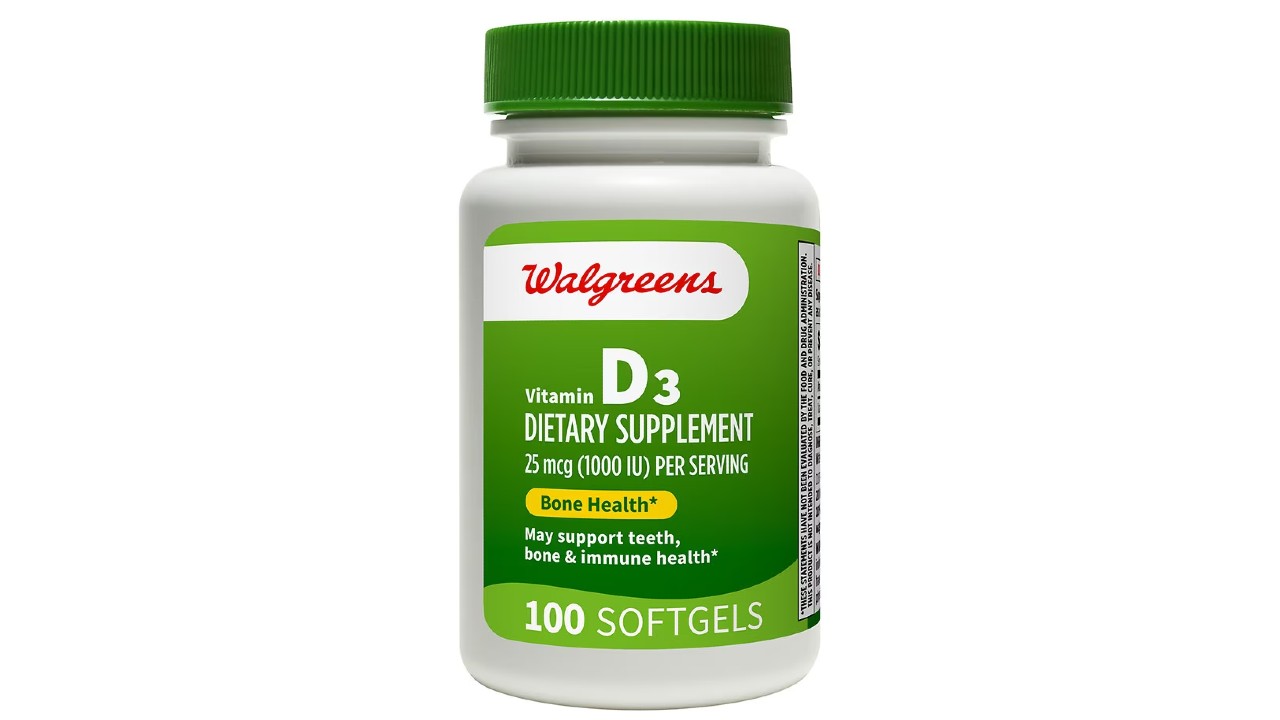
Walgreens Vitamin D3 25mcg
Specifications
Reasons to buy
Reasons to avoid
You can keep things cheap and simple with your vitamin D and just pick up a tub from Walgreens, since you’ll be getting more than your recommended daily allowance with these 25mcg softgels. There are also stronger softgels available, and larger tubs which can help you make a bit more of a saving.
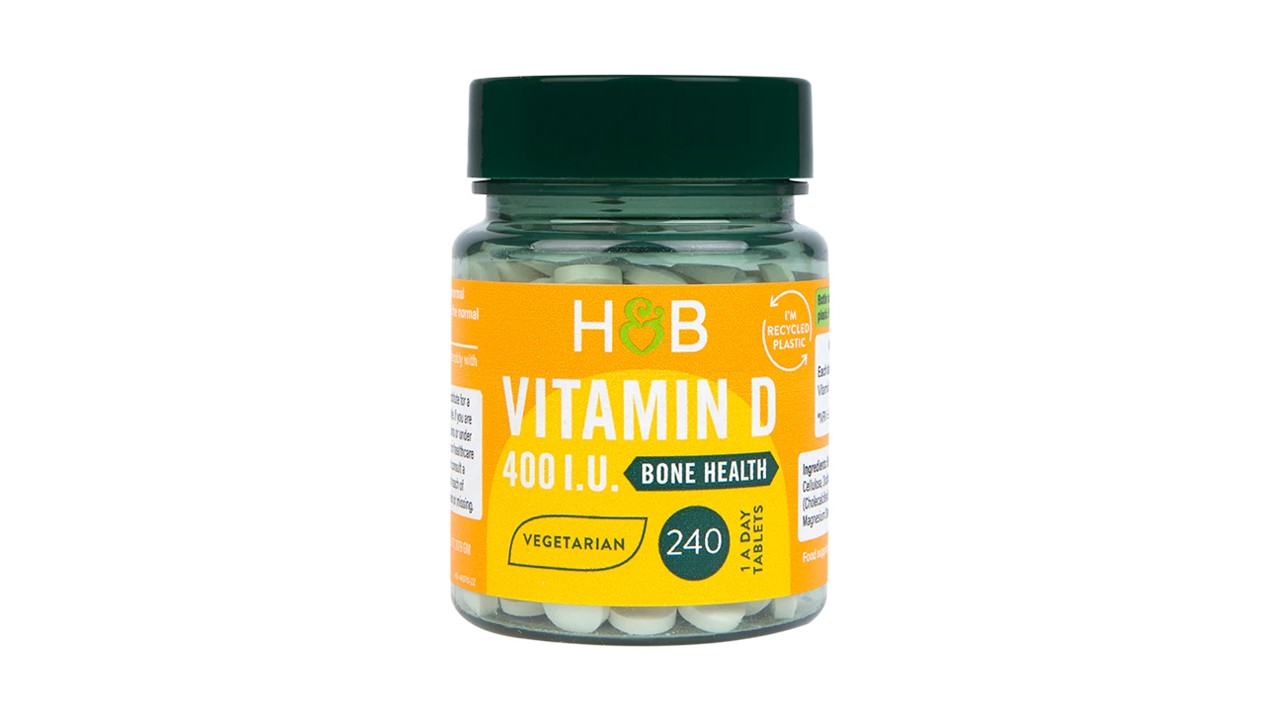
Holland & Barrett Vitamin D3
Specifications
Reasons to buy
Reasons to avoid
You can choose between 10mcg and 25mcg per tablet with Holland & Barrett’s own-brand vitamin D tablets, and the larger 240-pill tub will see you all the way through winter to the sunny side of spring.
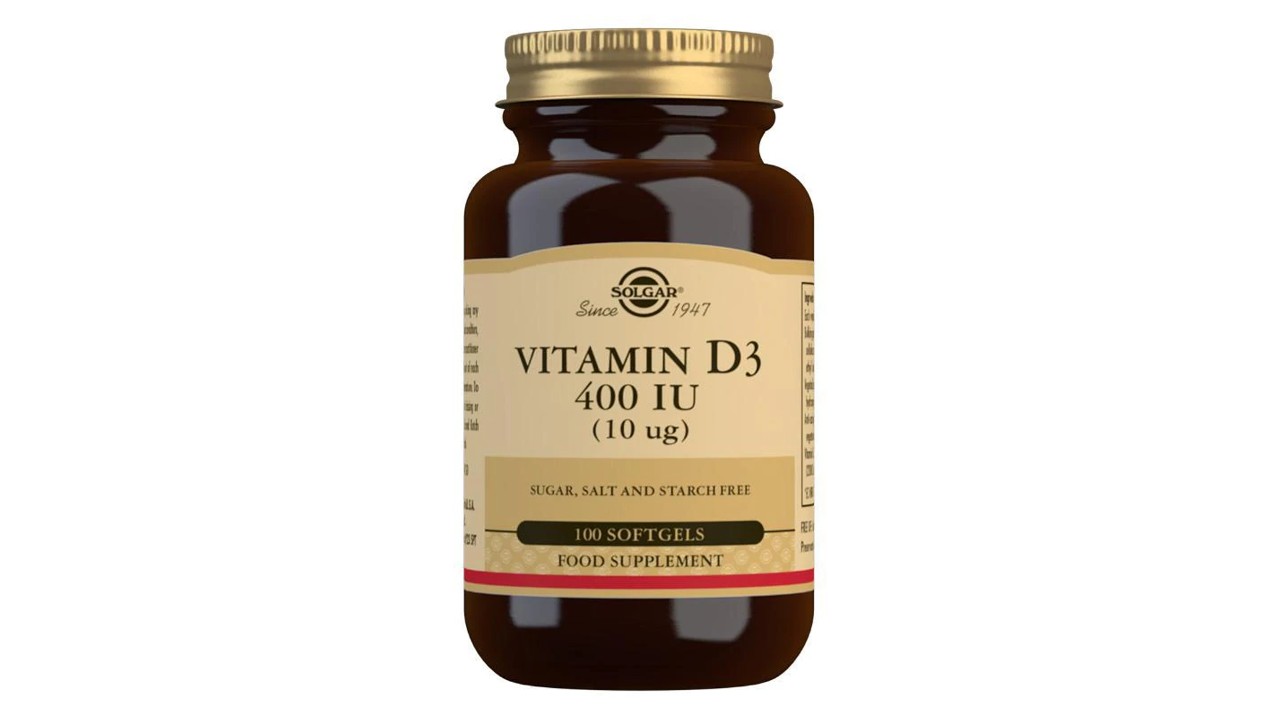
Solgar Vitamin D3 Softgels
Specifications
Reasons to buy
Reasons to avoid
If you find it difficult to swallow hard tablets whole, these soft capsules will serve you just as well in your bid to get enough D3 throughout the darker months. You do pay a bit more to get your vitamin D in this form, but for the hard tablet-averse it’ll be money well spent to avoid a daily pain in the neck.
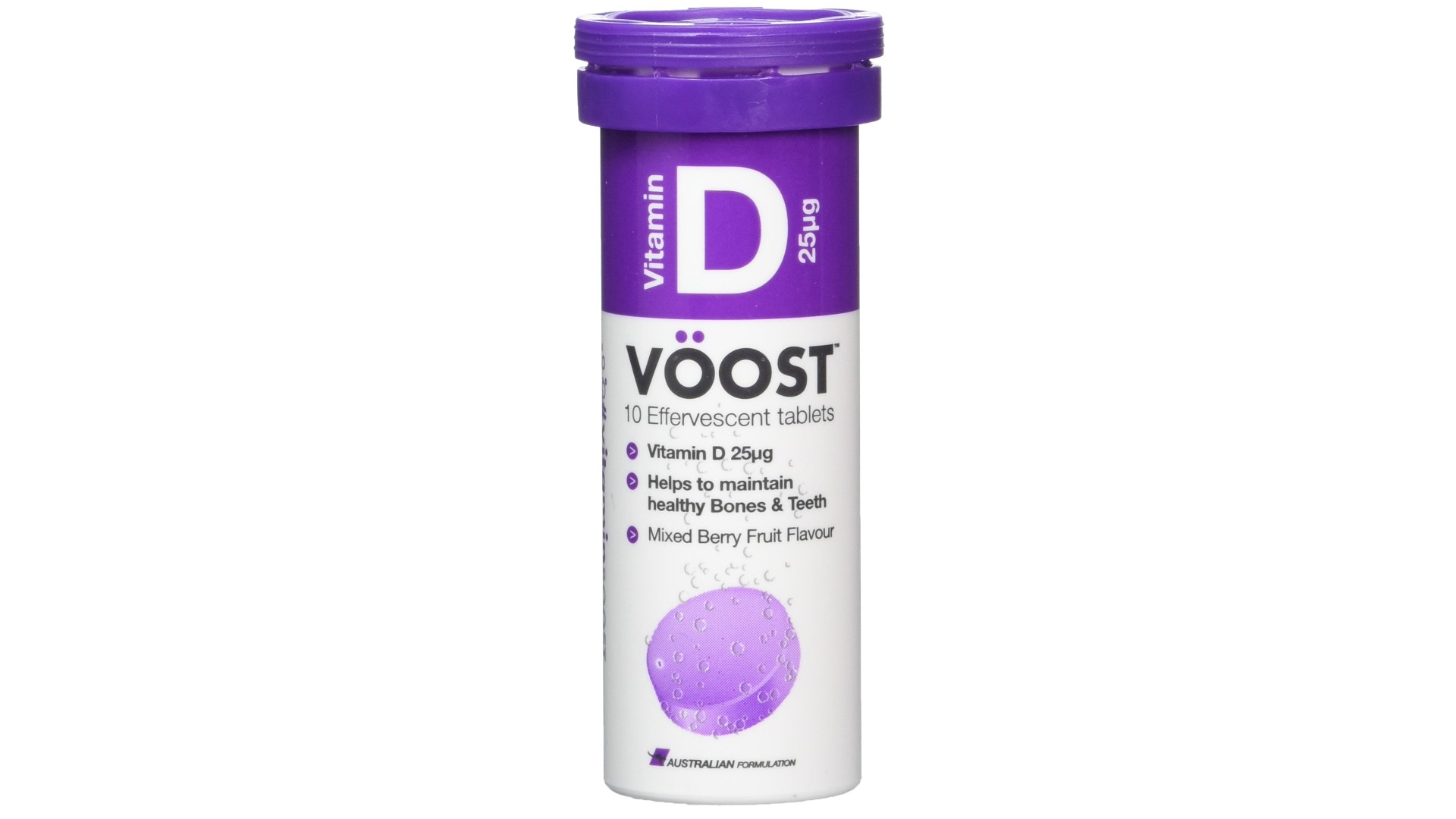
VOOST Vitamin D Effervescent Supplement Tablets
Specifications
Reasons to buy
Reasons to avoid
If even soft capsules stick in your craw then these soluble tablets might be the way to go. Drop one in water and it will fizz around to create a berry-flavoured drink that contains 25mcg of vitamin D.
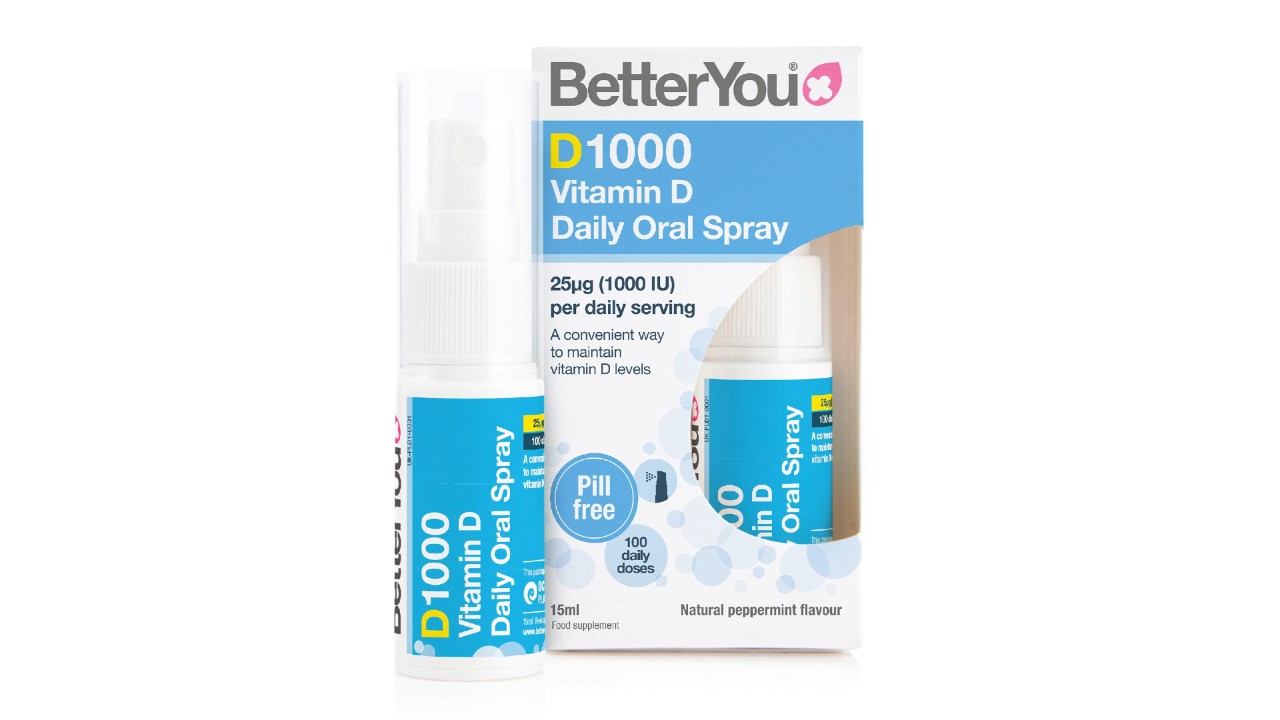
Better You Dlux Vitamin D Oral Spray
Specifications
Reasons to buy
Reasons to avoid
If tablets and softgels aren’t doing it for you, perhaps taking your vitamin D via an oral spray might be more palatable. This spray contains 100 doses, with each spritz containing 25mcg of vitamin D. That’s if you use it right – spray into the soft tissue on the inside of your cheek, rather than opting for an aftershave-style misting approach. The latter really will do very little for your vitamin D intake.
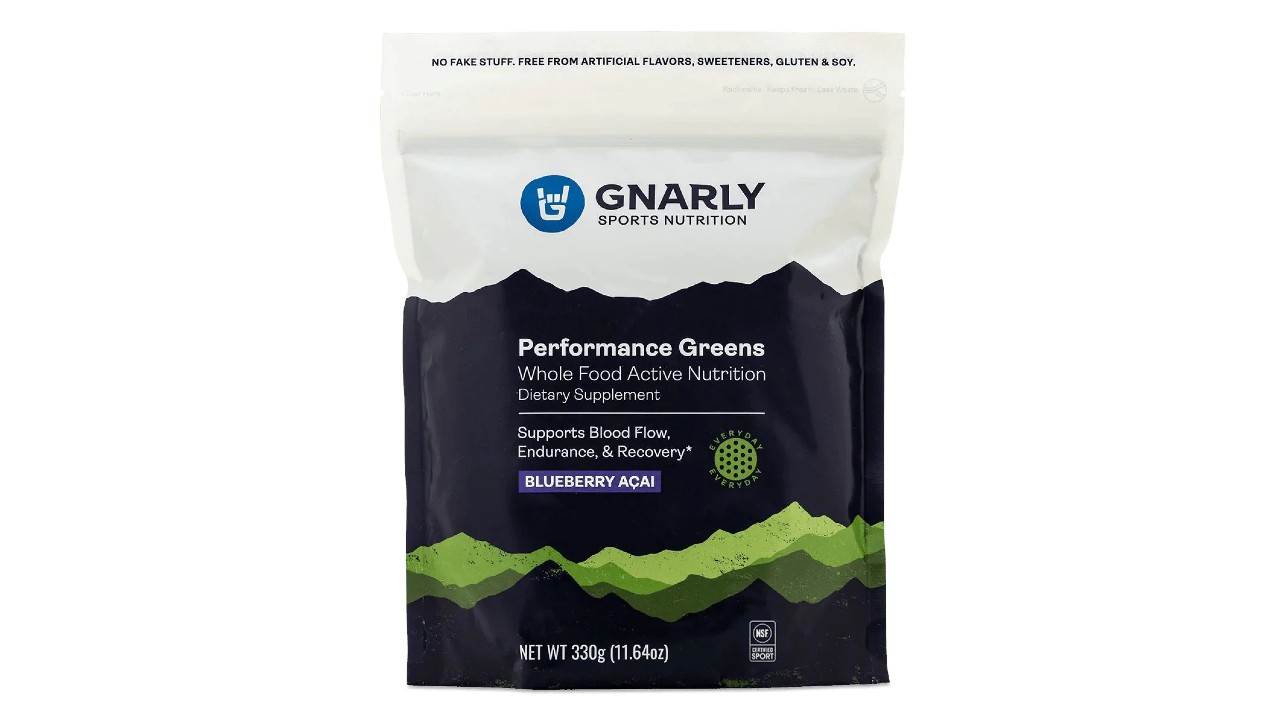
Gnarly Performance Greens
Specifications
Reasons to buy
Reasons to avoid
Vitamin D is just one of the 14 vitamins and minerals in this greens powder, which also contains other ingredients designed to support your training such as beetroot, cordyceps and tart cherry.
The powder comes in blueberry acai and lemon mint flavours, which do a reasonable job of masking the classic grassy taste of greens powders. The powder takes some mixing and we often had lumps in our drinks, but it’s more palatable than many greens powders we’ve tried.
Vitamin D Explained
What is vitamin D?
You can trust Coach
“Vitamin D, often referred to as the ‘sunshine vitamin’, is a fat-soluble vitamin that helps promote the absorption of calcium, regulates bone growth and plays a role in immune function,” says LloydsPharmacy pharmacist Pareena Patel. “These nutrients are key to helping keep bones, teeth and muscles healthy.
“The body does not produce enough vitamin D on its own, so it needs to be consumed through sun exposure, food or supplements.”
What are the symptoms of a vitamin D deficiency?
“There are numerous symptoms which may suggest you are deficient in vitamin D,” says Anshu Kaura, a LloydsPharmacy pharmacist. “The most common include fatigue, muscle aches and pains, bone pain and regularly becoming unwell.”
Of course, many of us feel perennially knackered, so we asked how you can tell the difference between feeling tired and fatigued. “A good way to distinguish between the two is if this symptom can be relieved by sleep and rest,” says Kaura. “If so, it is likely that you are tired, whereas fatigue isn’t relieved by rest and often feels overwhelming, and can be associated with mental and physical exhaustion.”
Do you need a vitamin D supplement?
If you live in the UK, or other high-latitude regions of the northern hemisphere, then the chances are that you will have some level of vitamin D deficiency. One of vitamin D’s main roles is to regulate the amount of calcium and phosphate in the body, so a severe deficiency can result in bone pain and tenderness from a condition called osteomalacia, as well as contributing to many other health issues. Supplementation can keep your levels in the ideal range to help prevent these problems, but be aware that taking high doses can deplete levels of other essential nutrients, including vitamin K.
When should you take vitamin D supplements?
The standard NHS advice is for all adults in the UK to consider taking vitamin D supplements from October until March. During the COVID-19 lockdown this had been extended to include spring and summer while many people were required to stay at home.
While that no longer applies, it does highlight that if you don’t spend much time outdoors or tend to not expose much skin when you do go outside – favouring long sleeves and a hat, perhaps – then it’s probably worth taking year-round vitamin D supplements. The government also suggests that babies and children under five take daily supplements all year round.
People with dark skin (particularly those with African, African-Caribbean and south Asian backgrounds) may also have problems getting enough vitamin D from sunlight, so they should consider taking a supplement all year round.
How much do I need?
In the UK, the government recommendation is 10mcg (400 IU) a day for adults and children over five. Infants’ and babies’ intake will vary depending on whether or not they are fed baby formula, because that contains vitamin D.
Can you take too much vitamin D?
The keen-eyed will have clocked that many supplements contain far higher levels of vitamin D than the government recommendation of 10mcg a day. The claim that you can’t take too much Vitamin D gets airtime on occasion – but you should be aware of how much you’re ingesting.
“Taking too much vitamin D through supplements over a prolonged period of time does have risks,” says Dr Louise Durrant, a dietitian and science manager at Yakult. “It can cause a build-up of calcium in the body, which can subsequently lead to bone weakening and damage to the kidneys and the heart. However, it is hard to have too much vitamin D by mistake, so it isn’t something most people need to worry about unless they are taking supplements with a dose much higher than the recommendation.
“It is advised that adults, including pregnant and breastfeeding women, and children aged 11-17 should not take more than 100mcg (4,000 IU) of vitamin D a day. This maximum dose decreases for children aged one to 10 to 50mcg and for infants under 12 months to 25mcg of vitamin D a day.”
Why do some supplements contain so much more than the recommended dose?
"Supplements that are available globally, such as those often found online, have widely varying doses because of different recommendations and regulations worldwide,” says Durrant. “Still, we should all be aiming to consume around 10mcg of vitamin D a day, and a combination of supplements and dietary sources, including fortified foods, can be a great way to achieve this.”
What’s the difference between vitamin D2 and vitamin D3?
“We do not make vitamin D2,” says Patel. “Vitamin D2 is produced by plants and mushrooms exposed to sunlight, and fortified foods such as breakfast cereals. Dairy-free milk including coconut, almond and soya milk are often boosted with vitamin D2.
“Your skin produces vitamin D3 naturally when you spend time in the sun: however, during the winter months when there is less sunlight, you might not get enough, which is why a vitamin supplement can work well as a top-up.
“If you want to increase your vitamin D3 intake through diet, it can be only found in animal-sourced foods. Sources of vitamin D3 are foods such as liver, egg yolk, butter, oily fish like salmon and mackerel and fish oil.”
How should I take it?
You should take a vitamin D supplement after a meal that contains high-quality fat because it’s fat-soluble, which means it’s better absorbed by your body in the presence of dietary fat.
What other benefits of vitamin D are there?
A 2017 study suggested that bread and milk should be fortified with vitamin D, saying that this could stop 3.25 million a year suffering from colds and flu.
Researchers from Queen Mary University of London analysed data from more than 11,000 participants in previous studies and found that one person in every 33 taking vitamin D supplements would be spared a respiratory tract infection (ranging from the sniffles to the flu or pneumonia) as a result.
Lead researcher Professor Adrian Martineau said, “Assuming a UK population of 65 million, and that 70% have at least one acute respiratory infection each year, then daily or weekly vitamin D supplements will mean 3.25 million fewer people would get at least one acute respiratory infection a year.”
The team also suggested that expecting everyone to take supplements was unrealistic, and that the UK should consider fortifying foods like bread and milk with vitamin D. This is already done in several other countries such as the USA, Canada, Australia and Sweden.
“Vitamin D fortification of foods provides a steady, low-level intake of vitamin D that has virtually eliminated profound deficiency in several countries,” said Martineau.
Get the Coach Newsletter
Sign up for workout ideas, training advice, reviews of the latest gear and more.

Nick Harris-Fry is a journalist who has been covering health and fitness since 2015. Nick is an avid runner, covering 70-110km a week, which gives him ample opportunity to test a wide range of running shoes and running gear. He is also the chief tester for fitness trackers and running watches, treadmills and exercise bikes, and workout headphones.
- Jonathan ShannonFormer editor
